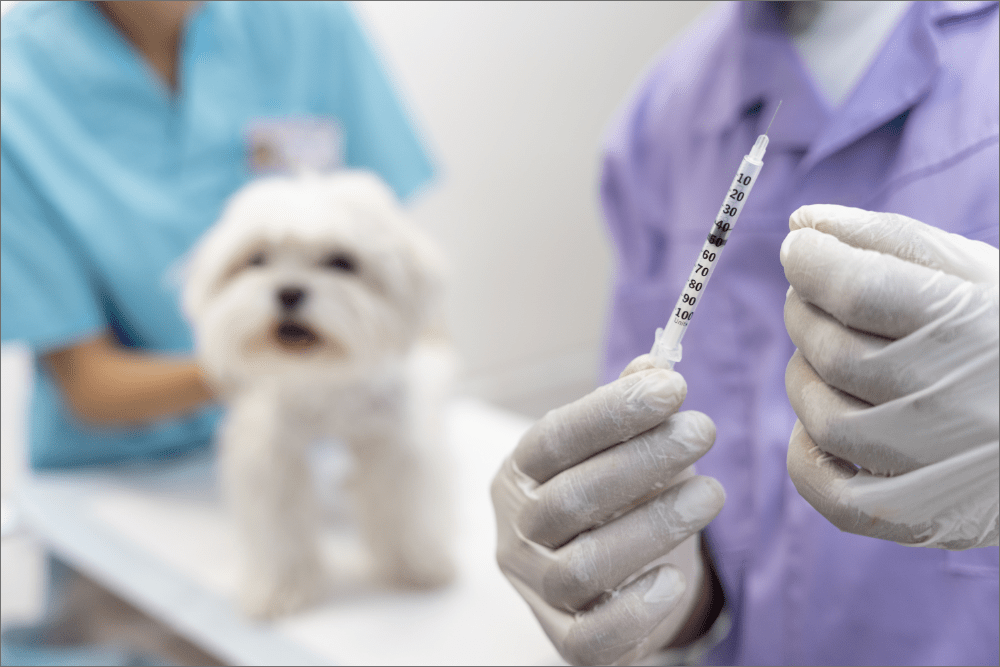Educating yourself on the best health practices for your dog and separating fact from fiction is essential for pet parents. Here are common dog health myths busted by an expert.
When it comes to your pet’s health, you cannot assume things or believe popular myths without corroborating things with your veterinary doctor. Pet parents adore their furballs and some of them believe all the information that comes their way without checking their authenticity.
However, a pet parent needs to update their knowledge regularly regarding the best practices to take care of their pooch. The most suitable way to achieve this is by taking your pet to their vet from time to time. 
While as a pet owner, you want to ensure your pet is safe and healthy, it can be challenging to determine if your pet is unwell, mainly because they can’t talk. So, educating yourself on the best health practices and separating fact from fiction is essential.
“Being a pet parent myself, I have witnessed the negative impact of prevalent misunderstandings about pet health. Most important is the myth and lack of understanding around preventive care and the importance of right vaccinations, antiparasitic medicines and multivitamins for the healthy life of pets. It is important to empower pet parents to provide optimal care and ensure pets’ overall health and well being,” says Gaurav Ajmera, Founder, Vetic.
Ajmera also debunks the common myths about pet health.
Debunking the top 5 common myths about your dog’s health
Myth 1: There is no risk of parasites if a dog stays indoors
Fact: While indoor dogs are less likely to be exposed to parasites like fleas and ticks, they can still be infected by parasites from various sources such as pests, other animals, and uncooked meat. Dogs can also be born with certain parasites or contract them from their mother’s milk.
It’s important to regularly monitor your dog’s health parameters and consult a veterinarian on prevention and treatment options.
Myth 2: Dogs don’t need frequent grooming
Fact: It’s important to remember that grooming your pets is just as important as their medical checkups. Regular grooming is essential for the health and well-being of your dog. Contrary to the popular myths about dog health, it’s not a luxury, it’s a necessity for your dog.

And no, you shouldn’t use human shampoos. Skin texture and requirements for pets and humans are very different and the wrong product can cause skin irritation and other health problems.
In addition to bathing and grooming, regular combing is a must and can’t be ignored. It improves skin and hair coat texture.
Myth 3: Spaying/neutering of dogs leads to health issues
Fact: Every pet parent has an opinion on the topic, and we are open to hearing what you think about spaying and neutering. However, the most common myths surrounding neutering/spaying is that it leads to hormonal imbalance, obesity and changes in behaviour including increased anxiety.
Spaying/neutering is recommended by veterinarian doctors to prevent cases of infectious diseases (such as TVT), tumours and cancers of the ovaries and uterus in females, prostate cancer in males and complications involving the reproductive organs in the old age of pets.
Myth 4: It’s okay to give human food to pets
Fact: Every furry buddy is different and their nutritional requirement varies with age, breed and health conditions. Usually out of love and ignorance, pet parents feed their pets with food from their plate. It’s a big No.
Given the vast difference between the digestive systems of humans and dogs/cats, their ability to process food is very different. Hence certain items such as – most berries, chocolate, milk, wheat chapatis, fried food, dry fruits, coffee, and processed meat must be avoided.
It’s best to consult your vet and understand the correct nutritional requirement for the pet. Feed your pet the right food in the right quantity.
Myth 5: Dogs need to be vaccinated only once
Fact: It is one of the BIGGEST myths about dog health that can be deadly for your pooch. Dogs need constant protection against bacterial and viral diseases. Many pet parents believe that post initial vaccination, follow-up vaccinations are not required.
Vaccinating for once does not give your dog immunity against canine distemper, canine parvo, parainfluenza, hepatitis and leptospirosis for life. Annual booster vaccinations are needed throughout your dog’s life to protect them from harmful diseases.
Hence discuss with your vet and plan annual boosters covering all vaccines- ARV, DHPPiL, KC and CCoV for the most effective coverage. Annual booster vaccinations are needed throughout your dog’s life to protect from harmful diseases.
Never believe everything you see on social media. Always take the time out to ask your vet before you begin a new diet, supplement or treatment regime for your pet.
Our vets are here 24/7 at Vetic, Sector 45 to attend to the healthcare needs of your fur babies. Download the app to keep a tab on your pet’s health. Upload past vaccination records and prescriptions, and update the current ones.

